If this movie seems somewhat dated now, it's only because it set the precedent for movies of its kind. It is a well-known influence on Psycho, for instance. I think it probably operates in a different way now than when it was first released. Any modern viewer who is even partially literate in the thriller genre will have a pretty good idea of how it might turn out. In that case, the thrills lie in the movement from point A to the inevitable point B. And you can revel in the filmmaking that takes you there. In Les Diabolique, Michel Delassalle's (Paul Meurisse) wife, Christina (Vera Clouzot) and mistress, Nicole (Simone Signoret) conspire to kill him. This plan is already in place at the outset of the film; his murder takes place in the first 45 minutes or so. From the on, the narrative is driven by Christina's contrition, fear and consequential hysteria.
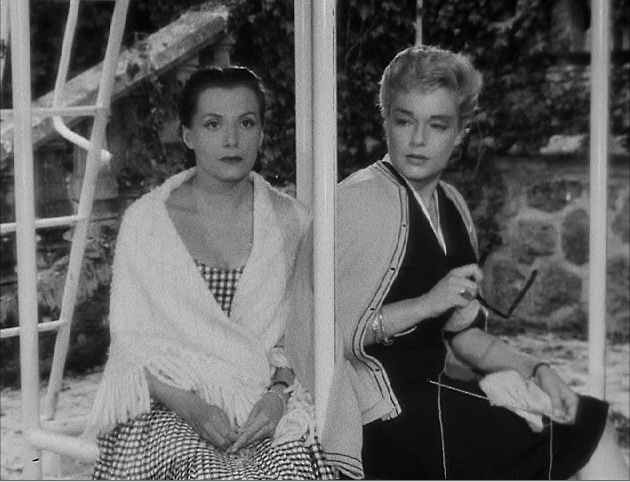

The scene above foreshadows the coming events, and demonstrates the power relationships pretty nicely. In contrast to Michel and Nicole, Christina is brittle and weak, with a heart condition to accompany her emotional fragility. Her already diminutive appearance is accentuated by the school girl braids that adorn her head throughout the film. She is dominated by all the characters around her, including Nicole, who pushes her to carry through with their homicidal plans.
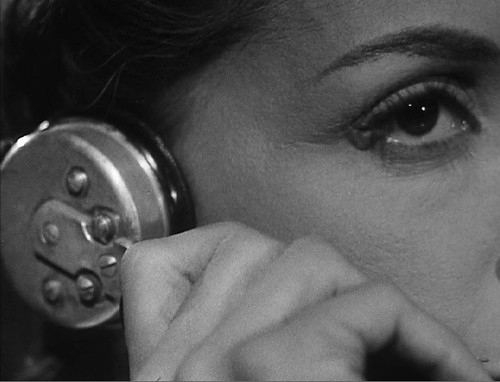


Close ups! Reaction shots!
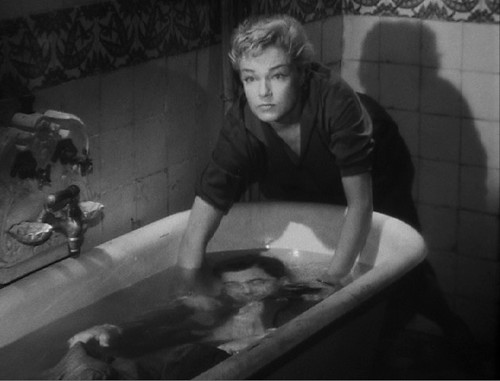

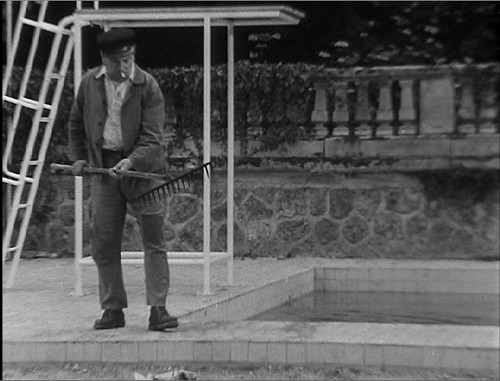
Due to the nature of Michel's death, there is an understandable focus on liquids. The opening credits take place over an abstract sort of background that is later revealed to be the swimming pool in the school yard. Bathtubs and pools are filled and emptied, as are pharmaceutically altered wine bottles, like the one that leads to Michel's immobilization. At one point, Plantiveau (Jean Brochard), the caretaker compares a full bottle to the soul, which, as we reflect on the doctored wine from a few scenes earlier, adds a new level to Christina's religious guilt about her actions. I also like to think there's some Stygian metaphor here, particularly in the many images of the murky pool water. The image above is very reaper-esque to me. There is also a sense of fatalism as Christina waits for the caretaker to discover the body once he has drained the pool. Meanwhile, the boys behind her are reciting their language lesson, conjugating the verb "to find."

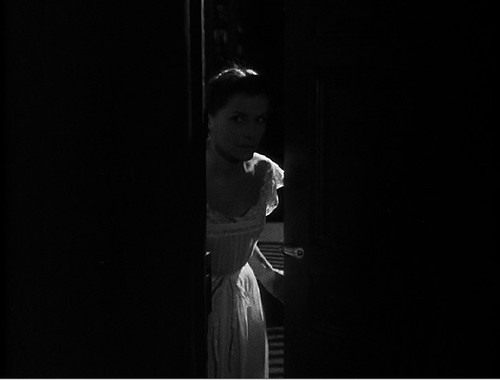
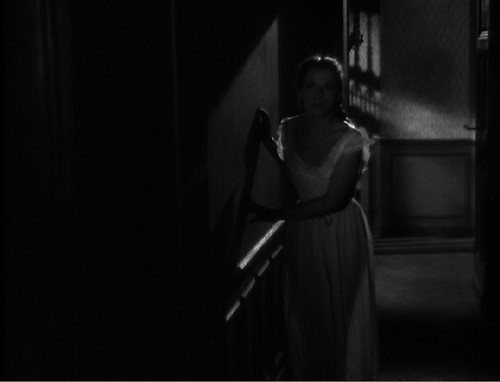
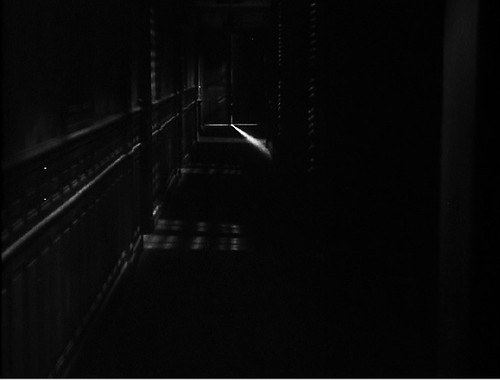
The best part of the film is the denouement, of course. Where the film, which has been relatively fast paced up until this point, slows down dramatically. The sense of space becomes drastically different, as well. The hallways that the frightened Christina stumbles through seem endless and labyrinthine. The way the sequence is edited, it is nearly impossible to ascertain where Christine is in the house and whether she is the one following or the one being followed.
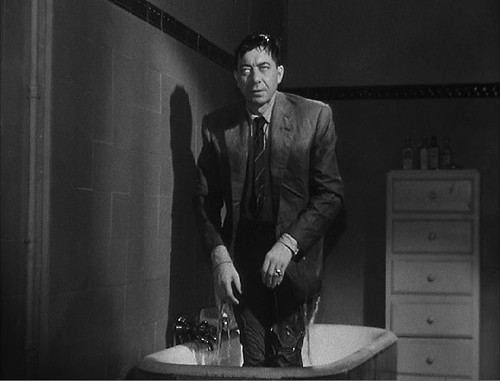

(Spoilers) Another thing I like about this ending is the way in which it recalls an earlier moment in the film where Christina notes that she her only wish is that Michel would be aware that she had killed him. In a similar fashion, Christina will never know exactly how her own death came about. She is positive that she has committed murder, and that she is a murderer. Therefore, it is true. It doesn't matter that Michel was never actually dead. She still intended to kill him, and took all the necessary steps to ensure that it happened. In the end, they are all sinners; they are all devils.
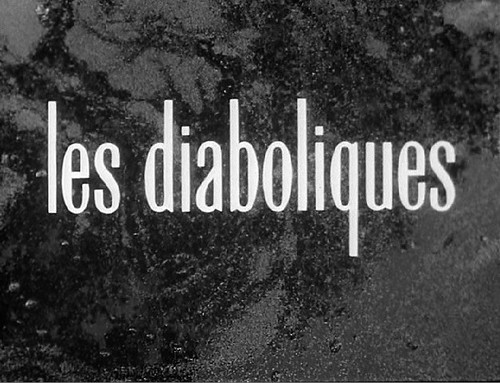

No comments:
Post a Comment